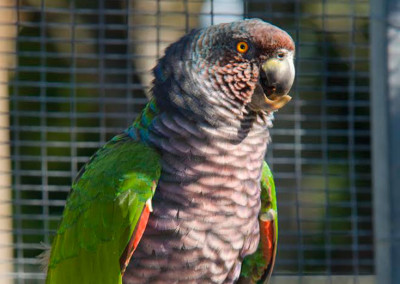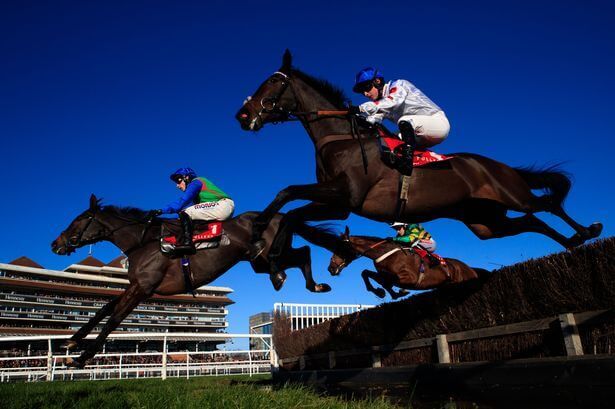Every National has its own story to tell, from Foinavon’s unexpected win to Devon Loch’s inexplicable defeat, the magic of Aldaniti or the misery of Esher Ness. Names of Aintree legends trip of the tongue, Golden Miller, Corbiere, L’Escargot, Party Politics, Bobbyjo and Papillon. 1933 Ford Roadster (Mere Image) 1987. 1932 Ford Roadster. 1932 Ford Roadster (Orange Crush) 1989. The 2014 Grand National boasted a seven-figure prize fund for the first time, which was replicated in the subsequent years. The Grand National is completely unscripted and totally captivating, steeped in a history of unpredictable winners and fabulous stories. The next chapter is ready to be written. More recent winners of both the Welsh and the Aintree Grand National are Bindaree and Silver Birch. The 2010 winner, Synchronised, went on to win the 2012 Cheltenham Gold Cup. The 2016 winner Native River, ridden by champion jockey Richard Johnson, went on to win the 2018 Cheltenham Gold Cup. Winners since 1948. Weights given in stones and pounds. Several winners of the Scottish Grand National have also won its English counterpart at Aintree. The first to complete the double was Music Hall, the winner of the 1922 Grand National. The feat has been achieved more recently by Little Polveir and Earth Summit, but the only horse to win both races in the same year was Red Rum in 1974.
The Grand National, held annually at Aintree, is the most popular horse race in the world. It attracts one of the largest global viewing audiences for any sporting event and it retains a prominent place in British culture. My lifelong love of the race began in 1967. I was six and can remember only grainy snapshots of infancy before that year's National. However, this event left an indelible impression. I watched it with my grandparents and recall black and white images of a seemingly endless stream of horses walking round the paddock. Then they were racing. Suddenly there was utter chaos, mayhem, adults in shocked excitement, the calm order that was all a child in the 1960s was meant to see was disrupted, the first realisation came that things happen that grown-ups can't control. 'That's the Grand National!' my grandparents said.
Volumes has been written about the Grand National over the years, however, when I looked I could not find a continuous, detailed and up to date history of the kind I was seeking, either in book form or online, hence this website. It will display on any device, please adjust your browser's zoom function to suit, but may be best viewed on a laptop or desktop.
I have strived for accuracy, however, sources are often contradictory and/or incomplete. In these instances I have used the source I consider the more reliable and/or applied logic to deduce as much as is possible. Evidence from visual sources (films, photos) has highest priority.


List Of Grand National Winners
For horses I have dispensed with any suffix (e.g. I, II, GB, Ire, etc.). For horses of the same name I have differentiated by using (1), (2), etc. except in the case of Peter Simple (grey) and Peter Simple (bay). I have used the sire's name in the cases of two of the four un-named horses who have run in the Grand National: Laurel (1850) and Greysteel (1851); the other two, one of whom ran in 1861 and one in 1866, later became Frank (who ran under that name in 1866) and The Tavern respectively, therefore, I have employed those monikers. Needwood (1855 & 1857) ran as Casse Cou in 1857 but is shown entirely as the former. Star Of England (1854, 1856 & 1857) ran as Hopeless Star on the latter two occasions, however, always appears under his original name. Little Tom (1858 & 1860) ran as Tease in 1860 but is shown entirely as the former. Flatcatcher (1859 & 1860) ran as The Curate on the latter occasion, however, always appears under his original name. Knight's Crest (1946 & 1948) ran as Tudor Close in 1948 but is shown entirely as the former. Likewise, Gay Navarree (1962-1966) who, unfittingly, raced as Pontin-Go 1964-1966 always appears under his original and proper name.
Grand National Winners History Jeopardy
For trainers I have shown who is generally discerned to have been the actual trainer in cases where the actual trainer was not the licence holder. Women trainers are not generally distinguished by Mrs, Miss, etc.
For jockeys I have not used Mr, Mrs, etc. to denote official amateur status because for many years the distinction between amateur and professional was blurry to say the least. Assumed names (often containing Mr) were common amongst lots of top, experienced and well known riders. In these cases I have endeavored to show their real names. Women jockeys are not generally distinguished by Mrs, Miss, etc.
Unless I have only been able to glean their surname, trainers and jockeys are generally shown with their initial/s (of their commonly used name or nickname where applicable) and surname in 'Races' and, unless I have only been able to glean their initial/s, with their full christian name/s (full commonly used name or nickname with full christian name/s in brackets where applicable) and surname in the appropriate index. A noble, military or other title pertaining to a trainer or jockey at the time of a specific race is shown in 'Races'. Where that title was gained or it changed subsequent to the person's first appearance the person is shown by their original moniker in the appropriate index with their later one/s shown in brackets. (All this looks less confusing than it sounds!)
In 'Races' the page for each year's race has three main sections: course changes; race facts; discussion. The 'Races' opening page includes an explanation of terms and abbreviations used, however, I will cover the general things here.
I have endeavoured to list non-finishers in order of furthest travelled in the race, splitting ties by giving order preference to the more prominent horse when exiting then to more weight carried, shorter odds, etc.
For many of the earlier years of steeplechasing it was regarded in some circles as not the done thing to be known as a professional trainer, therefore, there are numerous blank spaces in the 'Trainer' column of the race facts, something that is compounded by trainers being listed as Private or Abroad (this includes Ireland!) in publications until deep into the twentieth century.
In the discussion section I have placed the emphasis on trying to interpret the reasons for and significance of what happened with less attention paid to pre-race (mis)conceptions. The equine athletes are given most prominence, then the trainers for their work to maximise horses' athletic abilities, followed by the jockeys and their task to encourage, rather than stifle, the flow of that ability. In the course of the discussions (which can be read as a narrative) I have foolhardily attempted to compare and rate the best Grand National performances, hence my 'Scroll Of Merit'.
I'm extremely grateful to have received the generous assistance and wisdom of one of the leading Grand National historians, Mick Mutlow, during my research for this site. We have enjoyed many healthy and constructive debates. Subjective opinions expressed in the discussion section of each Races page are not necessarily shared by Mick!
I know there are a good number of Grand National aficionados in the world and I hope you will contact me to point out inaccuracies and typos, to provide missing or extra information, for general discussion, to challenge my assertions, and with suggestions for additional features (I will gradually add a passage on a specific relevant topic or subject to the foot of each year's 'Races' page (index below)). Where possible please inform me of the source of your knowledge so that I may compare it with the sources I have used. My intention is to conduct further research in pursuit of elusive and better information. Together we can make this the definitive Grand National website.
My YouTube playlist contains film from every Grand National for which any exists on that site: https://www.youtube.com/playlist?list=PL-uGqcJF5BojdlGqC3jVC9p5t0QgohvVp
Chris Dowling